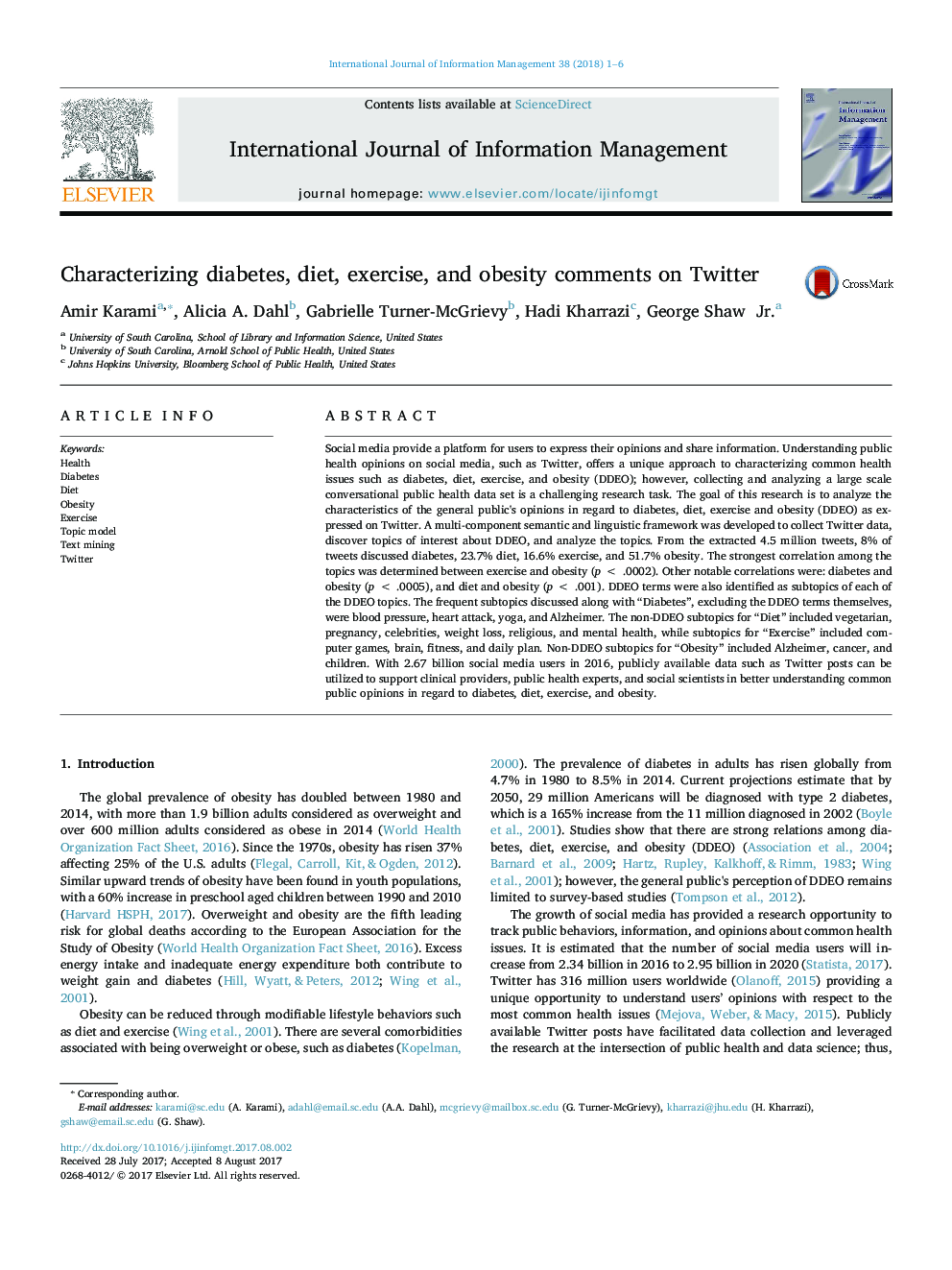| Article ID | Journal | Published Year | Pages | File Type |
|---|---|---|---|---|
| 5110702 | International Journal of Information Management | 2018 | 6 Pages |
Abstract
Social media provide a platform for users to express their opinions and share information. Understanding public health opinions on social media, such as Twitter, offers a unique approach to characterizing common health issues such as diabetes, diet, exercise, and obesity (DDEO); however, collecting and analyzing a large scale conversational public health data set is a challenging research task. The goal of this research is to analyze the characteristics of the general public's opinions in regard to diabetes, diet, exercise and obesity (DDEO) as expressed on Twitter. A multi-component semantic and linguistic framework was developed to collect Twitter data, discover topics of interest about DDEO, and analyze the topics. From the extracted 4.5 million tweets, 8% of tweets discussed diabetes, 23.7% diet, 16.6% exercise, and 51.7% obesity. The strongest correlation among the topics was determined between exercise and obesity (p < .0002). Other notable correlations were: diabetes and obesity (p < .0005), and diet and obesity (p < .001). DDEO terms were also identified as subtopics of each of the DDEO topics. The frequent subtopics discussed along with “Diabetes”, excluding the DDEO terms themselves, were blood pressure, heart attack, yoga, and Alzheimer. The non-DDEO subtopics for “Diet” included vegetarian, pregnancy, celebrities, weight loss, religious, and mental health, while subtopics for “Exercise” included computer games, brain, fitness, and daily plan. Non-DDEO subtopics for “Obesity” included Alzheimer, cancer, and children. With 2.67 billion social media users in 2016, publicly available data such as Twitter posts can be utilized to support clinical providers, public health experts, and social scientists in better understanding common public opinions in regard to diabetes, diet, exercise, and obesity.
Related Topics
Social Sciences and Humanities
Business, Management and Accounting
Management Information Systems
Authors
Amir Karami, Alicia A. Dahl, Gabrielle Turner-McGrievy, Hadi Kharrazi, George Jr.,
